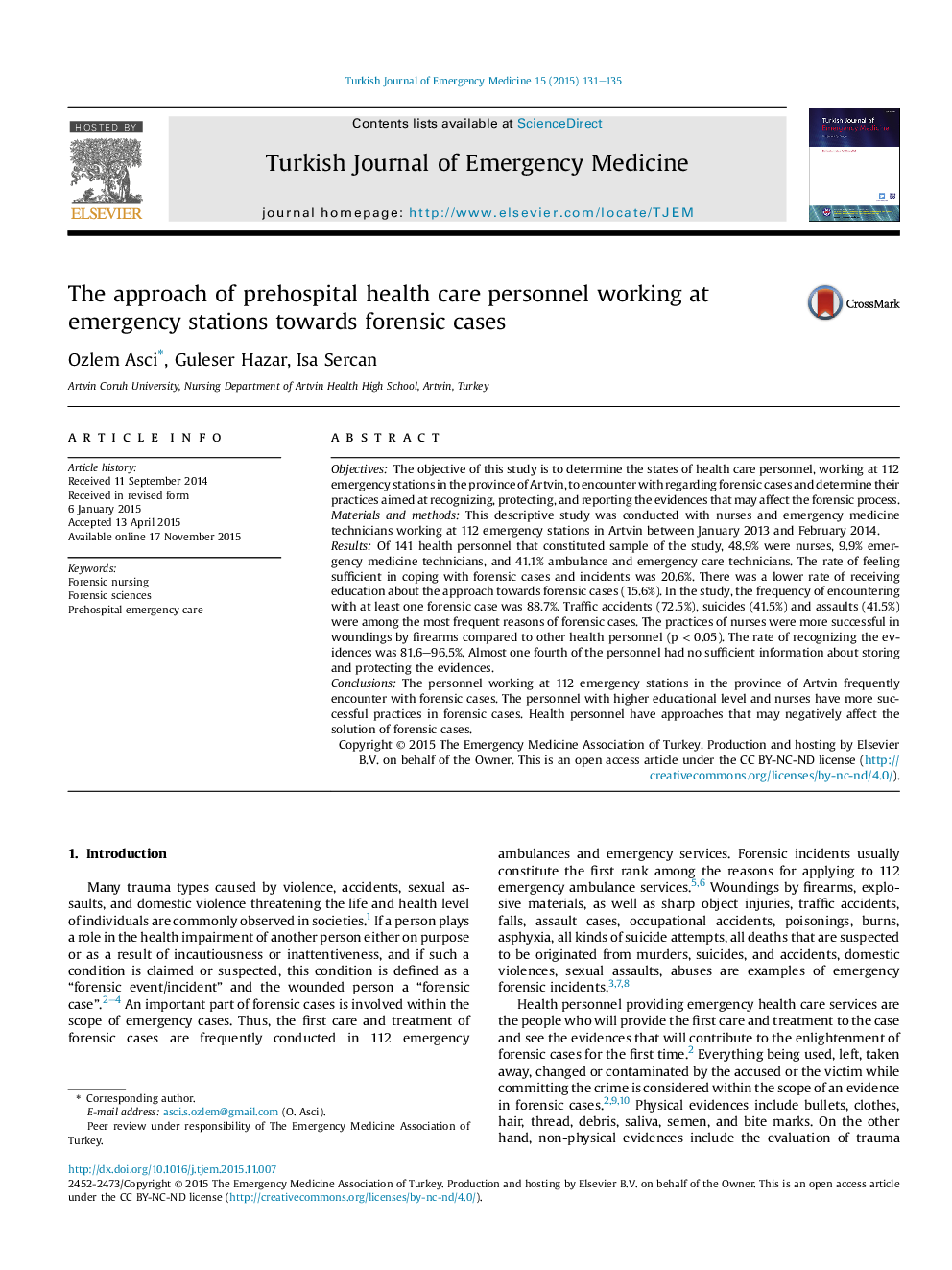| Article ID | Journal | Published Year | Pages | File Type |
|---|---|---|---|---|
| 2604131 | Turkish Journal of Emergency Medicine | 2015 | 5 Pages |
ObjectivesThe objective of this study is to determine the states of health care personnel, working at 112 emergency stations in the province of Artvin, to encounter with regarding forensic cases and determine their practices aimed at recognizing, protecting, and reporting the evidences that may affect the forensic process.Materials and methodsThis descriptive study was conducted with nurses and emergency medicine technicians working at 112 emergency stations in Artvin between January 2013 and February 2014.ResultsOf 141 health personnel that constituted sample of the study, 48.9% were nurses, 9.9% emergency medicine technicians, and 41.1% ambulance and emergency care technicians. The rate of feeling sufficient in coping with forensic cases and incidents was 20.6%. There was a lower rate of receiving education about the approach towards forensic cases (15.6%). In the study, the frequency of encountering with at least one forensic case was 88.7%. Traffic accidents (72.5%), suicides (41.5%) and assaults (41.5%) were among the most frequent reasons of forensic cases. The practices of nurses were more successful in woundings by firearms compared to other health personnel (p < 0.05). The rate of recognizing the evidences was 81.6–96.5%. Almost one fourth of the personnel had no sufficient information about storing and protecting the evidences.ConclusionsThe personnel working at 112 emergency stations in the province of Artvin frequently encounter with forensic cases. The personnel with higher educational level and nurses have more successful practices in forensic cases. Health personnel have approaches that may negatively affect the solution of forensic cases.
